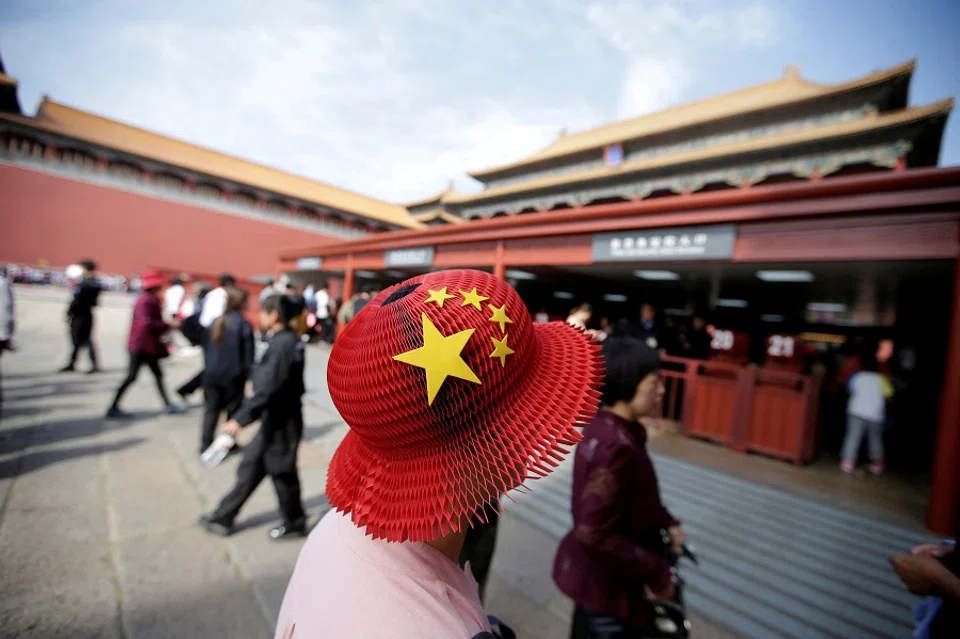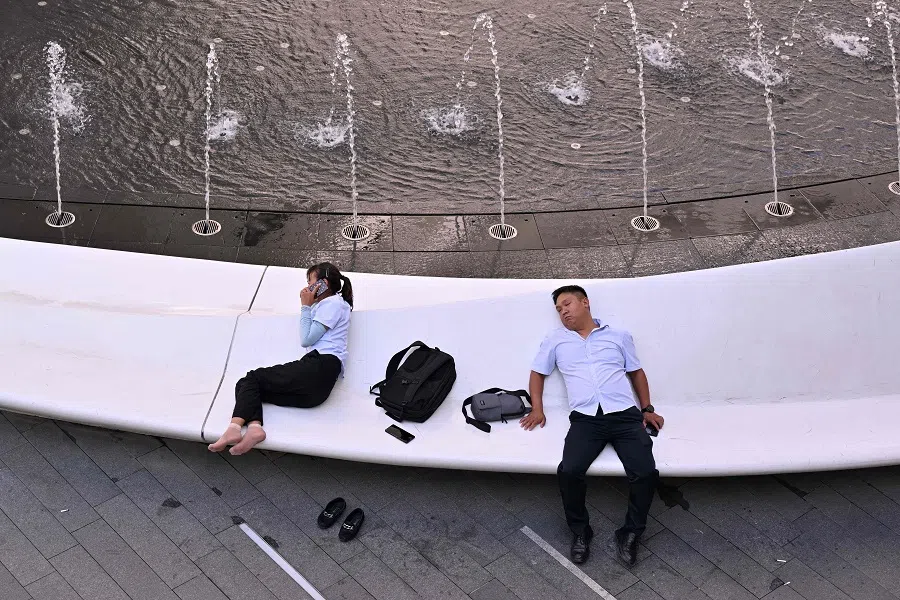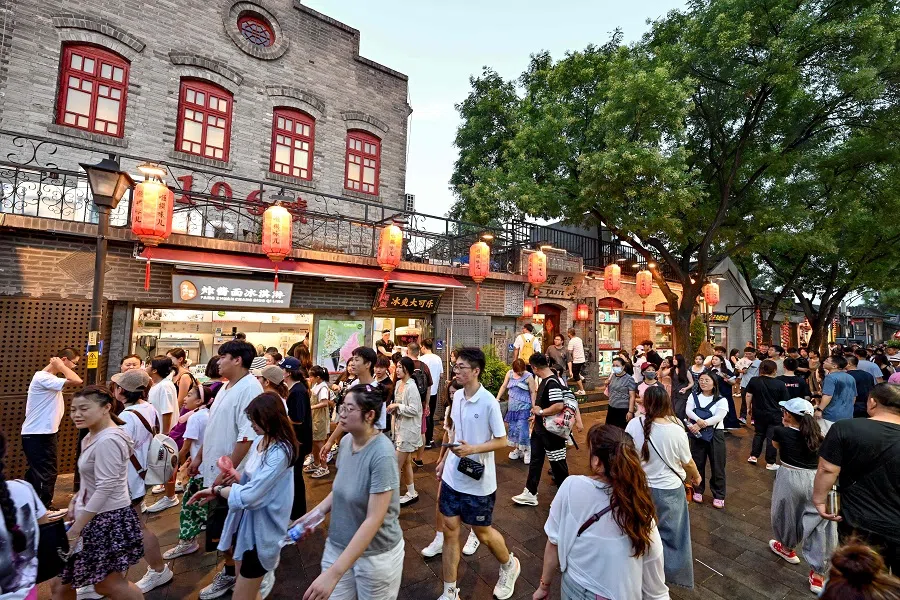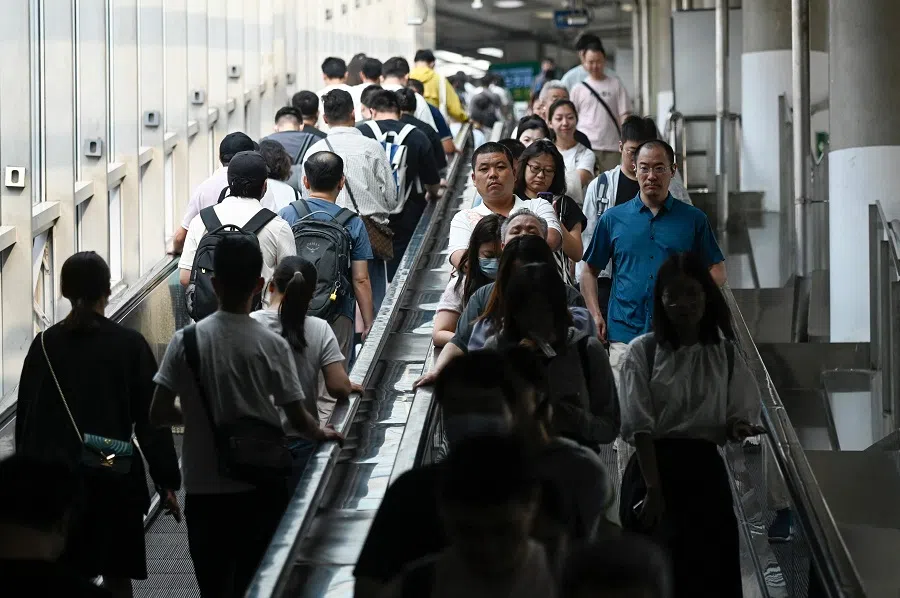Involution: Unveiling the emperor’s dream within every Chinese
Academic Zhu Wei notes that “involution” is built into the psyche of the Chinese people, given that they are accustomed to comparison and competition to rise to the top. The question is whether such involution is meaningful, and what people get out of it.

During a conversation, a friend expressed frustration in finding a private tutor for his middle school son. I reassured him that the enrollment rate in tertiary education in China was currently quite high. Moreover, gaining admission to one of the top 39 universities in China, known as a “Project 985” university, was not as challenging as he thought. Therefore, there was no need to be overly anxious.
He chided me for lacking empathy, saying that while his son might get into a Project 985 university without tuition, with tuition, he might get into Tsinghua University or Peking University.
Involution due to lack of wealth?
The country’s ban on the private tutoring sector has not stopped parents from becoming “involuted” (卷 juan, referring to various forms of inward spiral, regression or stagnation). Not only that, Chinese automobile companies are also lamenting that the intense price war has led to a severely “involuted” automotive industry where it is impossible to make profits. I cannot help but lament: it seems that the Chinese can never truly escape involution.
... the wealthier the Chinese get, the more involuted they become.
Some people say that China is involuted because it is not wealthy and developed enough, with a low per capita share of resources. But this explanation does not hold water.
Malaysia’s economy is about the same level as China’s, but a taxi driver told me that he only works seven hours a day. Sri Lanka is much poorer than China, but I was almost moved to tears when I saw the words “Life is short, make it sweet” stuck on a rickshaw.

If people are only involuted because they are poor, the country should have been more involuted two, three decades ago. But the opposite is true — the wealthier the Chinese get, the more involuted they become.
Why are the Chinese getting involuted? What are they getting involuted for?
Mianzi and involution
Involution is a phenomenon of mutual comparison and competition, a genetic trait inherited from China’s centralised political system.
The Qin dynasty established a commandery administrative system that was later formalised into a bureaucratic nine-rank system, where each rank was further divided into two classes, standard and secondary, making up 18 steps.
This created a hierarchy culture of superiority and inferiority. The hierarchy culture is open and takes the form of a ladder; it not only offers “climbing goals” to members of society but also gives them clear yardsticks for mutual comparison.
... status, hierarchy, honour, and disgrace were visible at a glance. This visualisation in turn triggers the Chinese concept of “face” (面子 mianzi).
The thought that even commoners can become top-ranked officials created a naturally powerful incentive. Thus, generations of Chinese devoted their entire lives to climbing the bureaucratic ladder.
At the same time, the distinctions in attire and horse carriage among officials of different ranks were strict, and social etiquette was structured and distinct, where status, hierarchy, honour, and disgrace were visible at a glance. This visualisation in turn triggers the Chinese concept of “face” (面子 mianzi).
Climbing up the ranks
The culture of hierarchy has deeply affected the Chinese mindset, entrenching a strong sense of comparison and competition among the Chinese, such that they particularly love to compare themselves to others. Students are ranked by exam results and there is a particular seating order at meetings and meals; even the heroes in the Chinese novel Water Margin have to be ranked.
The Chinese feel as if something is missing if there is no comparison or ranking. The Chinese are involuted because they want to climb to a higher rank than others and gain more face.
In the interpersonal relationships of the Chinese, apart from pleasing their superiors who have the ability to promote them, everyone else is a competitor and a target of suppression. This is why the Chinese have a strong culture of flattery and ostracism.
The Chinese people’s sense of achievement generally does not come from having created something but from climbing higher than others and gaining more face than everyone else. Thus, the Chinese have a weak culture of innovation and a strong sense of comparison.

Western nobility is a closed-off hierarchy. Commoners cannot rise to become part of the nobility, and hence Westerners do not make climbing the social ladder their life’s mission; this helped spur the development of the sciences, arts and commerce. Also, despite significant class differences, there is equality within each class, which contributes to a stronger sense of equality in Western culture.
After the decline of feudalism in the West, it transitioned into an egalitarian society. In contrast, in China, regardless of the political system, as long as the bureaucratic system remained at the core of the social structure, the hierarchical mentality persisted stubbornly.
For the Chinese, happiness lies in getting one up over others. Where there are two Chinese, there will be mutual comparison: income, education, house, clothes, even spouses and children — everything can be compared.
Rationally, everyone understands that too much involution is meaningless, but they cannot help getting pulled into it. Regardless of the actual benefits, as long as one comes out on top, one wins face and is happy.
In a way, every Chinese person harbours a dream of becoming an emperor. If not, it is due to unmet conditions or dormant aspirations.
Business civilisation helps in reducing inclination to compare
Why is involution becoming more prevalent? Because knowledge and productivity are improving across society. When others get stronger, one also has to get stronger. Fearful of falling behind, everyone competes relentlessly, thus leading to increasingly intense involution.
Where does involution ultimately lead? It leads to self-centeredness and a desire for supreme dominance.
In a way, every Chinese person harbours a dream of becoming an emperor. If not, it is due to unmet conditions or dormant aspirations. Thus, even as BYD and CATL have all risen to become leaders of their respective industries, they are still mired in involution because they have yet to achieve world domination.
When will the Chinese cease being caught in involution? From the perspective of cultural evolution, it will take some time. Only when the “exchange culture” has replaced the hierarchical culture would the comparison mentality slowly weaken.
Though competition is inherent in business civilisation, in the process of exchange, you come to recognise the other party as your equal. This mutual recognition fosters relationships of cooperation and coexistence. Thus, in a business civilisation, there is an inherent awareness of equality, cooperation, and adherence to rules and regulations, aspects less prominent in China’s traditional hierarchical culture.
Hong Kongers and Singaporean Chinese are much more influenced by a business civilisation, which could explain their relatively lesser obsession with comparison.

As the market economy develops further, the Chinese social structure with authority at its core would slowly change, and business civilisation would ultimately replace the bureaucratic culture, and become the mainstream societal culture. By then, involution would not be as severe.
As a culture of striving, involution does have its merits. Some forms of involution are reasonable competition, while others are meaningless comparisons. Competition is about effectiveness; when caught up in involution, one should carefully consider what is gained and lost.
This article was first published in Lianhe Zaobao as ““卷”是等级文化的产物”.





